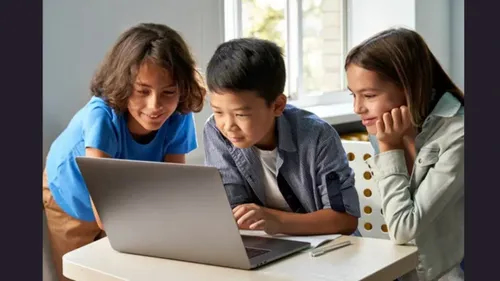Ad
Articles
Protecting Children from Social Media: A Global Perspective

The rise of social media has transformed how children interact, learn, and express themselves. However, it has also raised significant concerns about their safety online. Governments worldwide are increasingly recognizing the need to protect young users from potential harms associated with social media. In this article, we will explore recent developments in Australia regarding age restrictions for social media use and compare legislation from various countries to safeguard children online.
Australia’s Recent Developments
On September 10, 2024, Australian Prime Minister Anthony Albanese announced a plan to implement age verification technology aimed at preventing children from creating social media accounts. This decision has sparked a heated debate, particularly in light of the increasing time children spend online and reports of online harm. Parent groups have been vocal in demanding that technology companies take greater responsibility for protecting children.
The proposed age limit could establish a minimum age for social media use, possibly 16 years. However, experts warn that merely banning children from these platforms may not be the solution. Instead, more focus should be on encouraging tech companies to create safer online environments for young users.
The Debate Surrounding Age Restrictions
The discussion around age restrictions is complex. Critics point out that enforcing such bans can be challenging in a digital landscape where children often find ways to bypass age verification measures. For instance, South Korea’s Cinderella Law, which restricts gaming for minors during certain hours, led to issues like identity theft as children sought to access banned content.
Moreover, many parents feel overwhelmed by the task of managing their children’s online activities. A more balanced approach is needed, where parents receive adequate support and guidance on maximizing the benefits of online engagement while minimizing risks.
Global Legislation Protecting Children Online
Several countries have enacted laws and guidelines to protect children from the potential dangers of social media. Here’s a look at some notable examples:
- United States
In the U.S., the Children's Online Privacy Protection Act (COPPA) restricts the collection of personal information from children under 13. It requires websites and online services aimed at children to obtain verifiable parental consent before collecting data. Additionally, the U.S. Senate has passed legislation aimed at holding tech companies accountable for harmful content directed at children.
- United Kingdom
The Age-Appropriate Design Code, introduced in 2020, mandates that social media platforms design their services with children's safety in mind. This law requires platforms to prioritize children’s privacy and safety by default and implement age verification measures to restrict access.
- India
In India, the Digital Personal Data Protection Act, of 2023 allows children to access platforms only with verifiable parental consent. The law emphasizes that technology companies must take steps to ensure that children are not exposed to harmful content. However, there are concerns about how effectively this will be implemented, given the varying levels of digital literacy among parents.
- France
France has taken significant steps to protect child influencers by requiring producers to obtain permission from district magistrates before children can participate in audiovisual content. This law ensures that children are not exploited in commercial contexts, particularly on social media platforms.
- South Korea
South Korea has implemented the Cinderella Law, which prohibits minors from gaming between midnight and 6 a.m. The law aims to protect children from gaming addiction but has faced challenges with enforcement and compliance.
- New Zealand
New Zealand's Harmful Digital Communications Act addresses online bullying and harassment, particularly towards minors. This legislation provides mechanisms for reporting and addressing harmful content and promotes the responsibility of tech companies in safeguarding users.
| Country | Legislation | Key Features |
|---|---|---|
| Australia | Age verification technology proposal | Minimum age limit for social media accounts |
| United States | Children's Online Privacy Protection Act (COPPA) | Parental consent is required for data collection from children under 13 |
| United Kingdom | Age-Appropriate Design Code | Platforms must prioritize children’s safety and privacy |
| India | Digital Personal Data Protection Act, 2023 | Requires parental consent for children’s online access |
| France | Guidelines for Child Influencers | Permission is needed for children to participate in audiovisual content |
| South Korea | Cinderella Law | Restricts gaming for minors from midnight to 6 a.m. |
| New Zealand | Harmful Digital Communications Act | Addresses online bullying and harassment |
Concerns Regarding Online Safety
Despite the progress made in various countries, several concerns remain:
Enforcement Challenges: Age verification is difficult to enforce. Children can easily circumvent barriers, rendering bans ineffective.
Digital Literacy: Many parents lack the knowledge to effectively monitor their children's online activity. This gap in digital literacy makes it challenging to implement safety measures.
Overemphasis on Bans: Focusing solely on banning children from social media may overlook the need for creating safe online spaces. Companies should be held accountable for designing age-appropriate platforms.
Privacy Issues: Age verification often requires collecting personal data, raising concerns about privacy and data security.
Impact of Media Narratives: The media often highlights extreme cases of online harm, which can create panic among parents and overshadow the positive aspects of online engagement.
Shared Device Usage: In many households, children share devices with adults, complicating age verification and making it difficult to enforce restrictions.
The Role of Parents and Education
While legislation is crucial, parents also play a vital role in ensuring their children's safety online. Parents should actively engage in their children's digital lives, setting clear rules about social media use and monitoring their online activities. Educational institutions should incorporate digital literacy into their curriculum, teaching children how to navigate online spaces safely and responsibly.
Moreover, discussions around online safety should include topics like digital footprint management and understanding privacy settings. By equipping children with the knowledge to make informed choices, we can create a safer online environment.
Conclusion
The issue of protecting children from the potential dangers of social media is a complex challenge that requires a multifaceted approach. While countries like Australia, the U.S., the U.K., India, France, South Korea, and New Zealand are taking steps to establish protective legislation, the effectiveness of these measures will depend on implementation and public awareness.
As technology continues to evolve, parents, educators, and policymakers need to work together to create safer online spaces for children. By fostering open communication and promoting digital literacy, we can empower the next generation to navigate the online world responsibly and safely. The ultimate goal should be to balance the benefits of social media with the need for child safety, ensuring that young users can explore the digital landscape without undue risk.
Follow Us:
Ad
Recent News

Realme Narzo 90x 5G Goes on Sale in India Today
23-Dec-2025 06:59 AM

Samsung Unveils Exynos 2600, the World's First 2 nm Chipset
19-Dec-2025 06:30 AM

Google Unveils Gemini 3 Flash: Faster AI That Outshines Pro Model
18-Dec-2025 09:55 AM

Motorola Edge 70 Launches in India: Slim Design, Strong Battery
15-Dec-2025 07:14 AM

Jio’s Happy New Year 2026 Plans: Get Unlimited 5G and more
15-Dec-2025 06:38 AM
Reviews & Guides
View All

Nothing Phone 3a Community Edition First Impressions: A Fresh Take on Budget Smartphones

Realme P4x 5G Review: Budget-Friendly Beast with Epic Battery Life

Sony BRAVIA 7 Mini LED K-65XR70 vs. Haier Mini LED H65M95EUX

Samsung QN90F (65QN90FAU) Review: The King of Bright-Room Viewing

Why doesn’t Apple reveal the iPhone battery in advertisements?

Donald Trump Watch Collection: Timeless Luxury on the Wrist

Best 5 Litre Water Heaters in India 2025: Top Latest Models for Quick Hot Water

Top 10 camera lenses you should Own in 2025
Ad
Latest Mobiles In India
Ad
Ad












